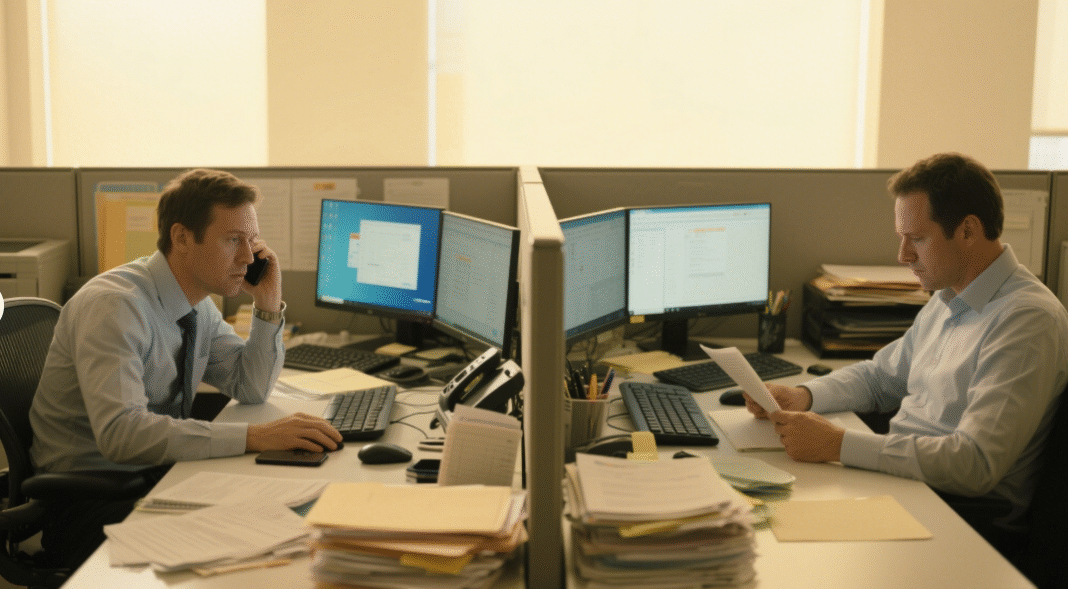In an age of hyperconnectivity, the ability to juggle multiple tasks has been worn like a badge of honor. We scroll through emails during meetings, respond to texts while cooking dinner, and hop between tabs like circus acrobats in the name of productivity. Multitasking, we’re told, is the key to getting more done, faster.
But what if we’ve been sold an illusion?
Despite its appeal, multitasking may be costing us more than we realize. Beneath the surface of our digital agility lies a quieter truth: deep focus is vanishing — and it might be the most valuable skill of our time.
The Myth of Doing It All
Multitasking sounds efficient — but neurologically, it’s a myth. The human brain isn’t built to process multiple complex tasks simultaneously. What we often call “multitasking” is actually rapid task-switching, where the brain shifts focus from one task to another, back and forth.
This switching comes at a cost. Studies have shown that constantly toggling between tasks reduces productivity by up to 40%. Each switch drains cognitive energy and disrupts our ability to concentrate deeply. It’s not just inefficient — it’s exhausting.
Worse still, multitasking trains the brain to become more distracted over time. The more we jump between tasks, the harder it becomes to settle into a single one. We condition ourselves to seek novelty and stimulation, rather than clarity and depth.
The Rise of Shallow Work
In our pursuit of doing more, we’ve slowly lost touch with doing well. Many of us spend our days in what author Cal Newport calls “shallow work” — low-value, reactive tasks like answering emails, messaging, or endlessly checking notifications. These are easy to start, hard to finish, and even harder to remember.
Shallow work makes us feel busy, but rarely leads to meaningful progress. It fills our schedules while draining our sense of accomplishment. Deep work — the kind that requires thought, patience, and undivided attention — is being crowded out.
And yet, it’s deep work that drives innovation, mastery, and creative breakthroughs.
Focus: The Underrated Superpower
In a world designed to fragment our attention, the ability to focus has become rare — and powerful.
Focus is not just about willpower. It’s about intention. It’s about choosing one thing — one idea, one task, one conversation — and giving it your full, uninterrupted presence. It’s the difference between skimming the surface and diving deep.
Those who can resist distraction and immerse themselves fully in a single pursuit will stand out. In an economy built on ideas and knowledge, the capacity for sustained focus has become a competitive advantage. In personal life, it allows us to be present — not just physically, but mentally and emotionally — with the people and moments that matter most.
Reclaiming Your Attention
Rebuilding focus in a distraction-heavy world won’t happen by accident. It requires conscious design — in how we work, think, and live. Here are a few ways to begin reclaiming your attention:
1. Do One Thing at a Time
It sounds simple, but it’s radical in today’s culture. Pick a task. Silence everything else. See it through. You may be surprised how fast and well you complete it.
2. Schedule Deep Work Time
Set aside blocks of time each day for undistracted work. Turn off notifications. Close extra tabs. Make it a ritual — not a rarity.
3. Create Tech Boundaries
Limit your exposure to digital distractions. Designate “no-scroll” zones like mornings or mealtimes. Use tools like screen time trackers to build awareness.
4. Embrace Boredom
Let your mind rest. Don’t reach for your phone the moment there’s silence. Boredom, uncomfortable as it may be, often precedes your best thoughts.
5. Be Present with People
When you’re with someone — really be with them. No background email checking or half-listening. Full attention is one of the rarest and most generous gifts we can offer.
Focus Is a Choice
Focus doesn’t happen by default — not anymore. The world won’t stop offering distractions. But we can stop accepting them by default.
True productivity doesn’t come from doing more things at once. It comes from doing the right things, one at a time, with full attention. Focus allows us to cut through noise, to do meaningful work, to engage deeply — and to live intentionally.
Final Thought
Multitasking may make us feel efficient, but it keeps us skimming the surface of our lives. Focus takes courage. It requires us to say no — to distractions, to superficial tasks, to the myth that more is always better.
But in choosing focus, we reclaim something rare and valuable: the ability to think clearly, to work deeply, and to connect fully.
In a world of many tabs and open loops, focus isn’t just useful — it’s a superpower.



